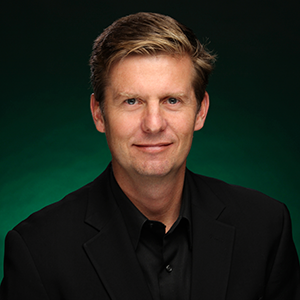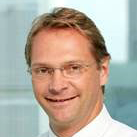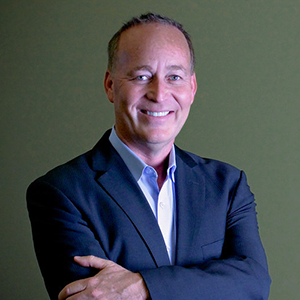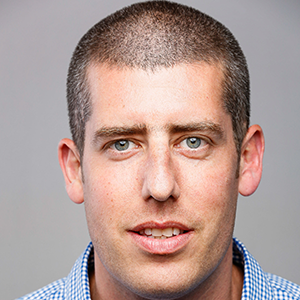Q: Christian, You just released your new PA-7080 next-generation firewall which is said to eliminate the shortcomings of "legacy products and siloed security architectures." Tell me a little bit about what your new solution does that previous firewalls (those "legacy products") don't do.
Christian Hentschel: The new PA-7080 next-generation firewall provides the power, intelligent scalability, and management simplicity ideally suited for deploying the PA-7080 in large dynamic service delivery networks and data centers that require superior next-generation security performance at scale. The PA-7080 delivers the computing power required to prevent today's modern cyberattacks across all applications and ports, and is derived from a proven architecture that blends ultra-efficient software with nearly 700 function-specific processers for networking, security, content inspection, and management.
Key features include:
- As added performance and capacity are needed, the PA-7080 will intelligently scale by automatically allocating new computing resources as they are made available when new processing cards are added.
- To simplify system administration as well as costs, the PA-7080 is managed and licensed as a single unified system. Single system management brings consistency with other Palo Alto Networks appliance deployment while system-wide management means consistent expenditures regardless of how many processing cards are in use.
- To support critical service provider and enterprise deployments, the PA-7080 is NEBS-compliant, has front-to-back cooling, and AC/DC power supply options as standard features.
Q: At Black Hat USA 2015, you announced a partnership with security startup Tanium, calling it part of "an ongoing evolution" to help partners take advantage of new technologies. Talk to me about that "ongoing evolution" and how is it going to help partners take advantage of your new technologies?
Hentschel: Given the speed and sophistication of modern cyberattacks, prevention technologies must be combined with lightning-fast detection and remediation to truly stay a step ahead of threats. Palo Alto Networks and Tanium will provide an integration that marries the Palo Alto Networks security platform with Tanium's instantaneous endpoint detection and remediation, and enable organizations to fully automate and accelerate the otherwise manual, time-consuming process of threat prevention, detection, and incident response across even the largest and most complex networks.
The Tanium Endpoint Platform will receive malicious indicators identified by Palo Alto Networks WildFire, which are automatically imported into the Tanium IOC Detect module. This relationship between WildFire and Tanium IOC Detect enables security teams to quickly and accurately discover compromised endpoints across the organization within seconds. In addition, as Tanium IOC Detect identifies new indicators of compromise at the endpoint, that intelligence is shared directly with Palo Alto Networks Panorama, which results in automatic delivery of new network-level protections across next-generation firewalls enterprise-wide.
The closed loop approach to prevention, detection, and incident response represented by the strategic alliance between Palo Alto Networks and Tanium will enable our partners to better provide comprehensive cyber-prevention solutions to our mutual customers.
Q: Palo Alto Networks has been talking a lot about prevention – what does this really mean and is it really possible?
Hentschel: "Prevent" is the word that matters in today's threat landscape. Effective prevention of attacks, before they happen, decreases the overall attack surface and makes it much more difficult -- and prohibitively expensive -- for hackers to penetrate an organization's defenses. Detection technologies and incidence response have their place, but it is impossible to keep up with threats if the only answer is to clean up after the attack, when the damage has been done. Prevention is not only possible, but achievable, even against advanced attackers.
It is increasingly obvious legacy technology solutions are not able to protect organizations in this age of sophisticated and aggressive cyberattacks. The Palo Alto Networks Security Platform, combined with sophisticated analysis and enhanced automation, defends against attacks targeting networks, endpoints, and cloud-enabled data centers. With cyber security now a numbers game, it is critical to alter the financial equation so the odds of launching a successful attack are significantly reduced, which dramatically increases the costs for the attacker.
Actionable intelligence is another core element that enables prevention. Security practitioners today receive an overwhelming volume of security data and alerts daily from a variety of tools, vendor feeds, and devices deployed across their organization. This vast pool of information, with little to no context or actionable next steps, makes it difficult to identify the unique, targeted attacks facing an organization, often resulting in missed opportunities to prevent the attack before damage can be done. With AutoFocus, Palo Alto Networks cyberthreat intelligence service, security practitioners have instant access to actionable intelligence based on files collected from global enterprises, service providers, and government organizations. With this context, such as the origin and uniqueness of a particular threat, or relevance to an organization's industry, security teams can significantly close the gap on the time it takes to identify and prevent advanced, targeted cyberattacks.
Palo Alto Networks strategy is to have a high degree of breach-prevention capabilities at every step in the attack life cycle. Our platform provides natively integrated and highly automated breach prevention capabilities that can demonstrably show the benefits of this approach. This is the right platform at the right time in history, as organizations continue look for a better way to solve problems that legacy technologies, point products, and strategies -- based primarily on threat detection and remediation -- cannot.
Q: You chose to become a Platinum Sponsor of Black Hat Europe. How has that worked out for you in the past ... and what are you expecting it will do for Palo Alto this year?
Hentschel: Black Hat has, for a long time now, provided significant opportunity for those from across the security spectrum to engage in discussion and debate around cyber threats and cyber defense. It brings together people from industry and academia, and from across the public and private sectors, enabling this discussion to be a collaborative one that reflects a range of different needs and perspectives. This dialogue is essential in the battle against cyber adversaries where sharing intelligence is essential in providing greater levels of defense against today's complex security threats.

